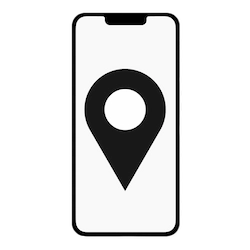How Much Does a Lawyer Get from a Car Accident Settlement?
A Detailed Exploration
Hiring a lawyer after a car accident can be essential in securing a fair settlement. However, understanding how much a lawyer will charge can be a significant concern for many. This article delves into the factors determining how much a lawyer might receive from a car accident settlement.
1. Contingency Fee Arrangements
Most personal injury lawyers operate on a contingency fee basis, meaning they only get paid if they win your case:
- Percentage of the Settlement: The fee is typically a percentage of the amount recovered, usually ranging from 25% to 40%.
- Varied Based on Complexity: Some lawyers might charge higher fees for more complex cases or if the case goes to trial.
- State Regulations: Some states may have laws regulating the percentage that attorneys can charge.
2. Pre-settlement Agreements
Understanding the terms of the fee agreement is crucial:
- Clearly Defined Terms: The fee agreement should outline the percentage the lawyer will take and any additional costs.
- Negotiation: While the fee percentage is often standard, some attorneys might be willing to negotiate, especially if the case appears straightforward.
3. Costs and Expenses
In addition to the contingency fee, lawyers might incur costs while working on the case:
- Court Costs: Filing fees, court reporter fees, and other related costs.
- Investigation Costs: Expenses related to gathering evidence, such as hiring expert witnesses or obtaining medical records.
- Miscellaneous Expenses: Postage, travel expenses, photocopying, and other administrative costs.
These costs might be deducted from the settlement in addition to the contingency fee or billed separately.

4. Settlement vs. Trial
The stage at which the case is resolved can affect the lawyer’s fee:
- Settlement Before Trial: Some lawyers charge a lower percentage if the case is settled before filing a lawsuit or going to trial.
- Proceeding to Trial: If the case goes to trial, the percentage might increase, reflecting the additional time, effort, and risk involved.
5. Gross vs. Net Settlement
How the lawyer’s fee is calculated can also vary:
- Gross Settlement: Some lawyers calculate fees based on the total settlement amount before deducting costs and expenses.
- Net Settlement: Others might calculate their fee based on the settlement amount after deducting costs and expenses, resulting in a lower price.
The difference between these two methods can be significant, so understanding your lawyer’s approach is vital.
6. Legal Ethics and Professional Standards
Lawyers must adhere to ethical guidelines:
- Reasonable Fees: The American Bar Association (ABA) and state bar associations mandate that lawyers’ fees must be valid. Factors considered might include the complexity of the case, the lawyer’s experience, and prevailing rates in the community.
- Informed Consent: Lawyers must provide transparent information about their fee structure, and clients must agree to the terms.
- Disputes: If a dispute arises over fees, clients might have recourse through state bar associations, which often offer fee dispute resolution services.
7. Alternative Fee Arrangements
While contingency fees are standard for car accident cases, alternative arrangements might be possible:
- Hourly Rates: Some lawyers might work hourly, especially in cases where liability is clear and the damages are easily quantifiable.
- Flat Fees: In very straightforward cases, a lawyer might agree to a flat fee for specific services.
Conclusion
The question of how much a lawyer gets from a car accident settlement is multifaceted, with numerous factors influencing the final amount. Contingency fees, costs and expenses, the stage of resolution, and the method of calculation all play a role.
Transparency and clear communication are essential. Understanding the fee structure, asking questions, and reading the fee agreement carefully can help ensure clients know what to expect.
While having legal representation can be vital in securing a fair settlement, it’s crucial to find an attorney who not only has the required experience and skills but also offers a fee structure that aligns with the client’s expectations and the particulars of the case.
Note: This article offers a general overview and may not cover specific nuances or state-level regulations. Always consult a legal professional in your jurisdiction to understand the precise legal landscape.
